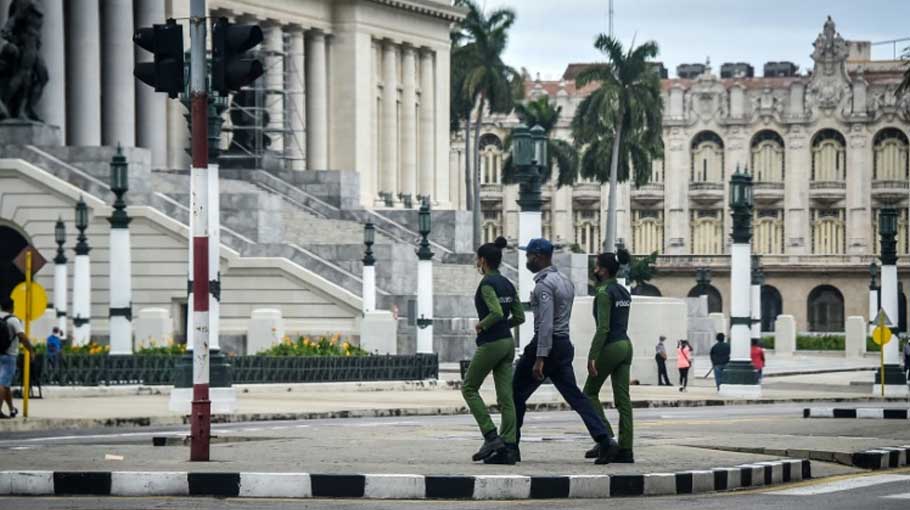Cuban dissidents arrested, mass protest thwarted as police swamp streets


Cuban security forces foiled a planned mass protest on Monday, with police flooding Havana's streets and prominent dissidents arrested or confined to their homes to prevent them from staging the banned rights gathering.
Friends and family members said those detained included opposition figure Manuel Cuesta Morua, 58, the leader of the Ladies in White rights movement Berta Soler, and her husband Angel Moya - a former political prisoner.
Another government critic, Guillermo Farinas, has been detained since Friday, and numerous protest organizers and independent journalists have reportedly been confined to their homes by the security forces, with their internet cut.
As Cubans observed a tense countdown to the planned 3pm (2000 GMT) kickoff of rallies called in Havana and six provinces, police were deployed in large numbers on the streets of the capital.
Along the city's seaside esplanade, armed police in uniform gathered on nearly every corner, while others in civilian dress patrolled the squares and parks. On social networks, some posted photos of themselves dressed in white in the streets, but the call to turn out en masse did not seem to have caught on.
Read more: PM to brief media today on UK, France visit
Foreign Minister Bruno Rodriguez mocked a "failed operation" while the Communist government accused the United States of wanting to destabilize Cuba through the demonstration, which was calling for the release of political prisoners.
"Apparently some of my colleagues in Washington dressed for nothing, for their party which did not take place," he quipped in a video posted on Facebook, because "the script was not good and the staging even worse."
For its part, Washington condemned the crackdown that thwarted the protest.
"In advance of peaceful demonstrations planned for today, the Cuban regime predictably deployed a set piece of harsh prison sentences, sporadic arrests, intimidation tactics, and acts of repudiation all in an attempt to silence the voice of Cuban people as they clamor for change," National Security Advisor Jake Sullivan said in a statement. The opposition had said the "15N" (November 15) gathering would go ahead despite an official ban and the risk of criminal prosecution, with hundreds still in jail after July protests that were put down by the armed forces.
Calls to join Monday's demonstrations had been widely disseminated on social media, urging Cubans to turn out en masse to press home demands for improved human rights and democracy as well as the freeing of what the organizers term political prisoners.
Spontaneous July rallies, fueled by growing anger at economic hardship and growing demands for "freedom," left one person dead, dozens injured and 1,270 arrested in a country where displays of public discontent are rare and risky.
More than 650 are still in jail, according to rights group Cubalex.
Under the banner of a group named Archipelago, protesters were urged to take to the streets dressed in white.
The group, founded by playwright Yunior Garcia, claims to have some 30,000 members inside and outside Cuba.
Garcia saw his plans to protest solo in Havana on Sunday blocked by the authorities, and on Monday was prevented from leaving his house by state security agents, an AFP journalist witnessed.



